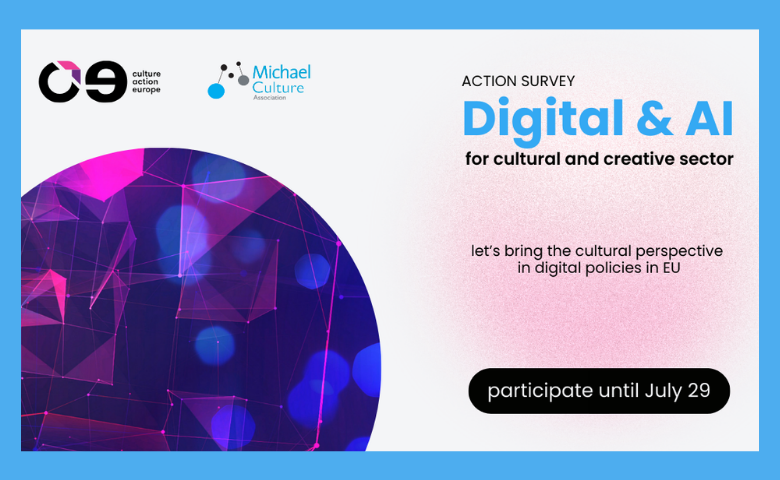Culture Action Europe and Michael Culture Association have launched a survey on digital and AI policies within the cultural and creative sector (CCS). This initiative is part of the Action Group on AI and Digital, jointly facilitated by both organisations since April 2024. The survey covers topics such as culture and artificial intelligence, ethics for digital, copyright in the digital domain, and a human-centred approach to digital policies.
Through this survey, we aim to:
- help policymakers in facilitating the ethical, transparent, and responsible use of AI within the CCS;
- identify areas where policy interventions are needed;
- understand the ethical concerns of cultural professionals regarding AI and digital technology;
- define key advocacy priorities for the action group, including contributions to drafting codes of practice in the context of the AI Act implementation.
The survey mainly consists of closed questions and takes no more than 10-15 minutes to complete. It is open until 29 July.
We would like to remind our readers that the Artificial Intelligence Act is set to come into force in July 2024. This regulation includes several provisions relevant to the cultural sector, such as:
- transparency obligations: AI providers must ensure that AI-generated or manipulated content is properly labelled;
- rights reservation: technical solutions are necessary to clearly label the creative works of rights owners, indicating any restrictions on using their data to train AI models;
- data sources: AI providers are required to provide a detailed summary of the data used for training their AI models.
The implementation of the AI Act will be supported by a specialised body within the European Commission—the AI Office. It will develop necessary technical templates and facilitate the drafting of codes of practice. The codes of practice will address technical details concerning the implementation of the aforementioned provisions.
Culture Action Europe and Michael Culture Association strongly encourage professionals from the cultural and creative sectors to express their interest in contributing to the codes of practice through the survey.






